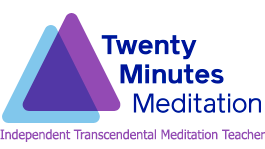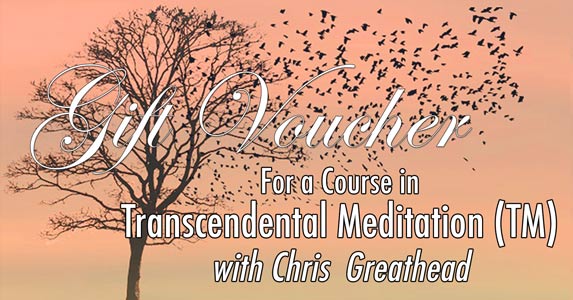Silversurfers on-line mag
So here I am, just turned 60 and like so many of our friends and contemporaries, we are starting to have to work on keeping fit and healthy.
I am not overweight (13 stone and 6 feet tall), male, when I last looked, and a regular exerciser with mountain biking, gym use and golf as my keep fit things to do.
However I have been dogged by high blood pressure for a few years at about 150 over 90 as an average level. With a history of heart disease in the family and a brother and sister with the same complaint, it was time to do something. So after the third set of blood pressure pills I started to look for something new. The pills made me feel very odd so the normal search on the web ensued.
How about Transcendental Meditation (TM), lots of articles about the benefits to wellbeing and blood pressure and reductions in hypertension?
So I was sceptical. Was it all “whale music and joss sticks”, mumbo jumbo and kaftans. I registered with a qualified teacher here in Guildford. Private consultation with a man in a suit and tie, a reasonable fee to be paid after the first free consultation. No kaftans in sight.
What is involved? Just a simple, stress free technique to calm your mind and reduce tension. It needs some work to get right but practice makes perfect. It is meant to be easy and stress free and it is. 20 minutes a day night and morning.
The results:
A reduction in blood pressure.
A more focussed approach to work tasks with a clearer head all day. You will make up the time spent in your day by clearer more efficient thinking.
Most beneficial though is am much improved sleep pattern. 7 or 8 hours a night, no problem, with no long periods awake at 4 a.m., any more.
I read about the explosion in insomnia in the UK, up fivefold from the early 90’s. Maybe partially due to the explosion in caffeine consumption (by chance up fivefold from the early 1990’s), but certainly due to the hectic and pressured working lives we are now expected to lead. So try this simple technique, do try to learn it form someone properly qualified. It will help with insomnia and hypertension if you take it seriously and put some time in. It really can sort your problems out with no horrid drugs to cope with.
Written by Clive
About the author
Clive
0 Up Votes
A father of two grown up boys and happily married, and enjoying life to the full! Just turned 60 and feeling great … l really enjoy golf, mountain biking and going to the gym. Get the odd bout of gout and swear by cherry juice as a natural cure, and now I have just discovered Transcendental Meditation.







